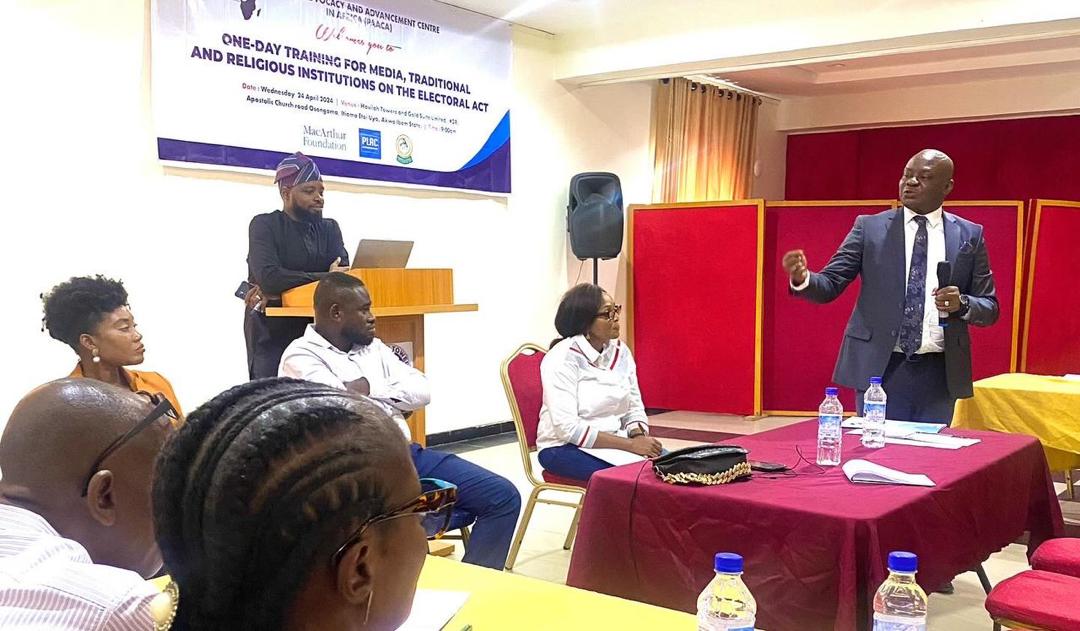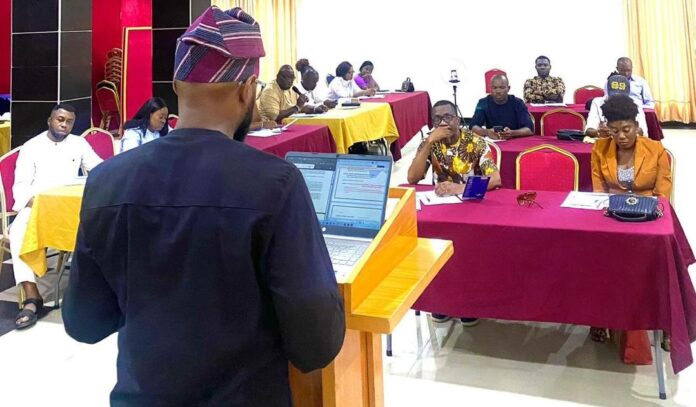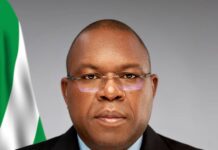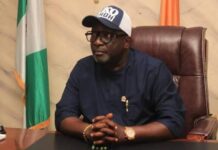A cross section of journalists in Akwa Ibom State at a capacity building workshop on Electoral Act 2022 organised by Peering Advocacy and Advancement Centre in Africa.
Abasifreke Effiong
Peering Advocacy and Advancement Centre in Africa (PAACA), a non-governmental organisation working on election reforms is going round Nigeria to breakdown the Electoral Act 2022 to citizens to deepen their understanding of the Law ahead of 2027 elections.
The organisation said many Nigerians did not invest in understanding the Electoral Act before the 2023 general elections.
This created room for misinformation in the media, misunderstanding by citizens, and ignorance of responsibilities and roles of each stakeholder within the electoral process.
“The Electoral Act is not a lawyer’s document, it is the citizen’s document. We have to break it down for everyone to understand the provisions and roles of each stakeholder.”
Executive Director of PAACA, Mr Ezenwa Nwagwu, said his organisation with support from MacArthur Foundation, Policy and Legal Advocacy Centre, and Women’s Right Advancement and Promotion Alternative, is seeking to build capacity of journalists and citizens groups on the Act and collate their inputs for electoral and constitutional reforms.
Last week, PAACA held an intensive a-one day capacity building on the Electoral Act for journalists in Akwa Ibom state, and a-one day town hall with citizen groups in Uyo.

Mr Nwagwu said they observed a huge level of ignorance about the Act in media reports and discussions, signposting the depth of knowledge gap about the Law among critical stakeholders and citizens.
“Guests on media programmes, On Air Personalities (OAPs) talked about the elections without recourse to the Electoral Act. This created a lot of unbelievable controversies.”
READ: Akwa Ibom has achieved near 100% efficiency in financial management system – Linus Nkan
“We have also seen the gaps in the course of engaging citizens around the country. In a place where you have 60-70 participants, only two raised their hands to say they have read the Electoral Act. We want to deepen the knowledge of law by popularising the Electoral Act before 2027 through the media.”
PAACA seeks to close that knowledge gap by popularising the Electoral Act 2022, broadening stakeholders’ understanding of the Law and deepening the performance of their roles to strengthen the integrity of the electoral processes.
According to Nwagwu, the training for journalists held on Wednesday 24th April was designed to equip media, traditional and religious institutions with the necessary knowledge and skills to understand and communicate the provisions of the Electoral Act, enabling them to conduct step-down training and host informative radio programme on the Law.
The citizens’ town hall held on Thursday 25th discussed the roles and impacts of stakeholders on the integrity of elections, compiled and presented citizen-derived recommendations on electoral reforms and constitutional amendment in four areas.
The thematic areas included electoral integrity and transparency, voters education and participation, electoral system reforms, electoral legal framework and institutional reforms.
Participants at the town hall were drawn from the Independent National Electoral Commission, INEC, National Orientation Agency, NOA, Inter-Party Advisory Council, IPAC, Civil Society Organisation and Disability clusters in attendance.
Citizen groups called on INEC to step up effort to monitor finances, audit and publish expenditures of political parties and their members reduce election expenses and fraud, migrate to full electronic voting, and introduce late voting for accredited personnel who are on election duties on election day.
Continuous voters registration and instant collection of PVCs, deployment of disability-friendly election materials and aids for PWDs, prosecution of security personnel whose inactions at polling unit aids and abate electoral offences, and strict sanction of political parties linked with electoral violence, were recommended.
Citizens called on political parties to ensure free, fair and transparent congresses and primaries to forestall cross-carpeting after primaries, advocated stricter procedures on waivers especially close to the election cycle.
The meeting called on CSOs and the media to be active in engaging the electoral system in the states, noted that investments made to improve electoral systems at the federal have not been made replicated at the state.
“We have not seen the same energy put in to engage the electoral systems at the national in the states. Active engagement by CSOs and the media is needed here.”
















